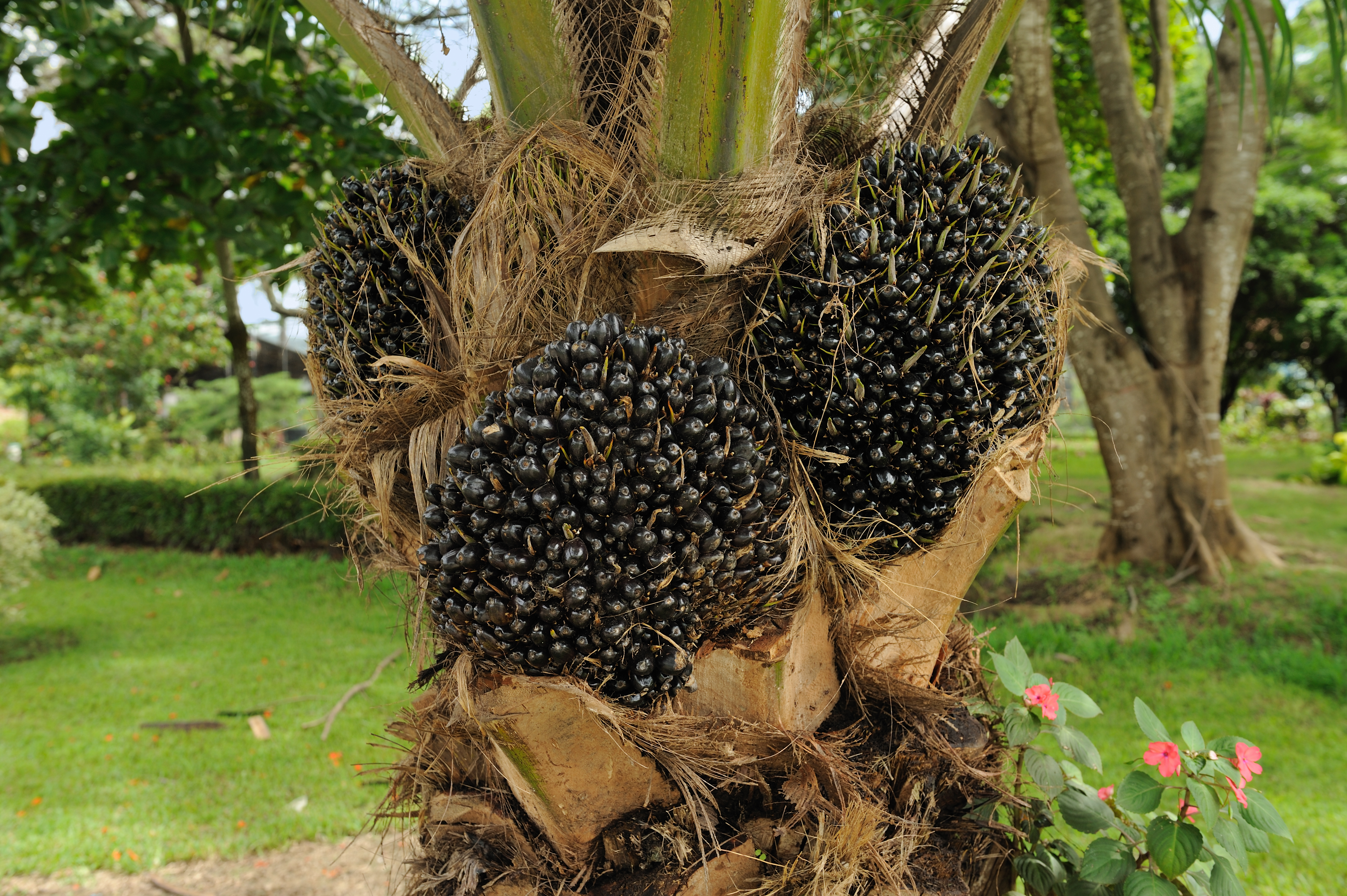Palm oil has been in the news a lot lately. Commonly used in the food industry, it has been touted as a healthier alternative to many other oils. Early this month, the groups Forest Heroes and SumOfUs released a report in conjunction with National Doughnut Day, bringing more attention to the crisis of the palm oil industry around the world. It shows how the doughnut industry is severely lagging behind other food industries in producing goods using sustainable raw materials, namely palm oil. Responding to pressure, two of the largest doughnut chains, Krispy Kreme and Dunkin’ Donuts, have recently made statements that they are committed to adopting 100% sustainable palm oil in their production.
The palm oil tree is native to West Africa and was originally a subsistence crop. Since the 1970s, demand has exponentially increased causing a shift to large-scale plantations globally. Over half of the current plantations are in Malaysia and Indonesia. Because the demand for palm oil continues to increase, more and more tropical forests are being destroyed in order to clear space for new plantations. The destruction is having a devastating affect on the natural wildlife and forest-dwelling peoples who call the forests home. The orangutan, elephant, rhinoceros and tiger are a few of the dozens of species being driven out of their habitats or killed for palm oil cultivation. Along with wildlife and human habitat destruction, there is also concern over air, soil and water pollution, soil erosion, and climate change due to greenhouse gas emissions. But there are people working to put a stop to this.
Efforts of organizations like the Roundtable on Sustainable Palm Oil (RSPO), and the Palm Oil Innovation Group (POIG), in which the WWF is involved, were launched in order to set standards for improvements in the palm oil industry.
Four things WWF is asking palm oil buying companies to do:
- Immediately buy 100% of the palm oil they consume from one of the RSPO approved supply chain options.
- Set challenging time-bound plans for shifting to using only physical CSPO
- Demand ‘best practice’ from their CSPO
- Demand and use information from the RSPO and others to make judgments on which producers are implementing ‘best practice’ and preferentially source from them.
 Something simple each of us can do to help encourage the growth and use of sustainable palm oil is by looking for the RSPO Trademark on labels when we shop.
Something simple each of us can do to help encourage the growth and use of sustainable palm oil is by looking for the RSPO Trademark on labels when we shop.





























Robert, you can see a list of products with the RSPO logo on the RSPO website
https://www.rspo.org/en/trademark_gallery
presumably competitor’s with similar products in each of the categories could do the same (but choose not to)
how dare us, to do such a thing.
once again the object is money–no matter the destruction of anything else. what a world!!!
Fighting for sustainability is the right thing to do. So thank you.
But I am afraid we tend to forget the farmers, that have small, family-sized lands. They are unable to pay for certifiers. Therefore, whether they produce sustainable palm oil or not, they will be eliminated from supply chains because they did not get the expensive stamp of approval.
This simply isn’t fair.
Eleanor,
This is indeed an area of concern. Thankfully, there are people fighting to help the small-production farms meet the standards for RSPO certification. One organization, WAGS, is doing just this. You can read more about their efforts here: https://oilpalm.wildasia.org/small-producers/wags/
Instead of helping smallholders, RSPO certifications are putting them aside… this includes more paperwork to fill in and more money to spend !
Great suggestions but where would one find products with the RSPO logo on them??
Have you seen any?